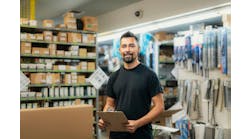More than half — 56 percent — of independent shop owners plan to sell their businesses by 2020 (according to a 2015 survey by Hiscox Insurance). Just as in many other industries, retiring baby boomers are making way for new owners and entrepreneurs in the auto repair sector.
Yet these aren’t mega corporate merger and acquisition deals like Icahn Automotive’ s recent $35 million acquisition of Precision Auto. And the owners and employees aren’t billionaire hedge fund managers like Carl Icahn, either. But they are important to their retiring owners and the employees who remain.
Given long-term trends in the auto repair business, and the fact that the skills to repair cars and trucks are beyond most consumers’ abilities to manage themselves, prospects for the industry look good.
One category of potential buyers is close to home: key employees. We’re seeing a lot of employee interest in taking over the shops where they work. It certainly makes sense for someone who knows the business to take it over.
The benefits to employees buying out the boss work both ways, and apply to franchises and independent shops alike. For owners looking for a predictable exit from their business (most often to retire), employee ownership makes for an ideal succession plan. The staff already has the skills, understands the operation and has a relationship with the client base. Employees buying the business not only preserve the business and the associated jobs, but also can build equity and create their own long-term wealth.
But how do employees become business owners? Few, if any, are wealthy enough to write a check. In fact, the Hiscox Insurance survey cited above reveals a third of independent shop owners find bank financing to be “tight.”
The Small Business Administration’s (SBA) 7(a) loan program can be the answer. It’s a federal loan guarantee program that helps lenders on qualifying loans be more flexible, and it focuses on operating businesses, like auto shops. In general, the 7(a) program can provide more reasonably priced loans, over longer terms than online lenders, and with more flexibility than regular bank financing.
In a couple of recent examples, as far apart as Idaho and Maine, we at C7a helped long-time employee managers buy out their retiring bosses. In neither case did the employee have the resources to make the purchase without a loan.
Both worked with the respective owners to plan for the transition. Experts advise that for the best odds of a successful transition, start planning well ahead. Because of this, both borrowers had some savings to provide some “money down.”
Both had worked with business advisors or local economic development organizations, Montana and Idaho CDC and a CEI Maine Small Business Development Center business advisor, respectively, to prepare plans for the financing, the transition and the longer term.
“It made sense for all of us,” says Jared Scofield, one of the two long-time employees of Garry’s Automotive in Boise, Idaho, who bought the business from its retiring owners. “We started the process years ago, saving money and learning the business. We not only want to be here for our customers, but for our staff too, providing a good living for all of us.”
Similarly, James Chattley, an experienced and trusted employee of a Meineke franchise in Topsham, Maine, was approached by the shop’s owners to discuss their plans to retire as well as the possibility of him buying the business.
Chattley worked with W. Bradshaw Swanson, a certified Business Advisor at the Small Business Development Center at CEI. Through dedicated customer business advising, Swanson introduced Chattley to the SBA 7(a) lenders at C7a. As Chattley says, ”The team at CEI and C7a structured the loan with terms that made sense for me and the future success of this business. They really understood me and my goals for the shop.”
Swanson agrees that a 7(a) loan was the best fit for Chattley’s situation, and says, ”The acquisition of the franchise was a great opportunity for James. He had successfully managed the shop for more than a decade. He had the cash from savings for the down payment and needed borrow the balance to buy the business. When the bank turned him down, we approached C7a because of the customer-focused, flexible financing option they offered. It was a terrific fit. From the outset, when we contacted them, we got the sense that they saw the opportunity for James. They said, ‘We see the potential here. Let’s see what we can do to make this deal work.’”
Both Scofield and Chattley had approached local banks, which should be the first port of call for any borrowers, but in their cases the banks were not willing to help, as the deals didn’t quite fit their credit criteria or current portfolio requirements. Consequently, their advisors introduced them to C7a.
Businesses are typically valued on the amount of cash flow they produce after paying expenses (Earnings Before Interest Tax Depreciation and Amortization or EBITDA in accounting parlance). An independent auto shop or franchise might change hands for anywhere between 2 and 5 times EBITDA, typically between $250,000 and a couple of million dollars, depending on the type of work it does and the size. That doesn’t include buying the real estate. Successful shops are generally able to support the debt necessary to service a leveraged acquisition (one utilizing dent as a significant part of the purchase price).
As a mission lender (not a bank), we at C7a look at the big picture when analyzing a borrower’s credentials- where the business is located, does it have a history of profitability and what is the potential for future revenue.
It is our mission to support entrepreneurship and opportunity for all and therefore, we support the mechanic or supervisor that has extensive experience in the industry to make the leap to business owner. It is good for the business and beyond when an experienced employee, invested in the community, can buy out the boss, keeping ownership on Main Street instead of Wall Street.


